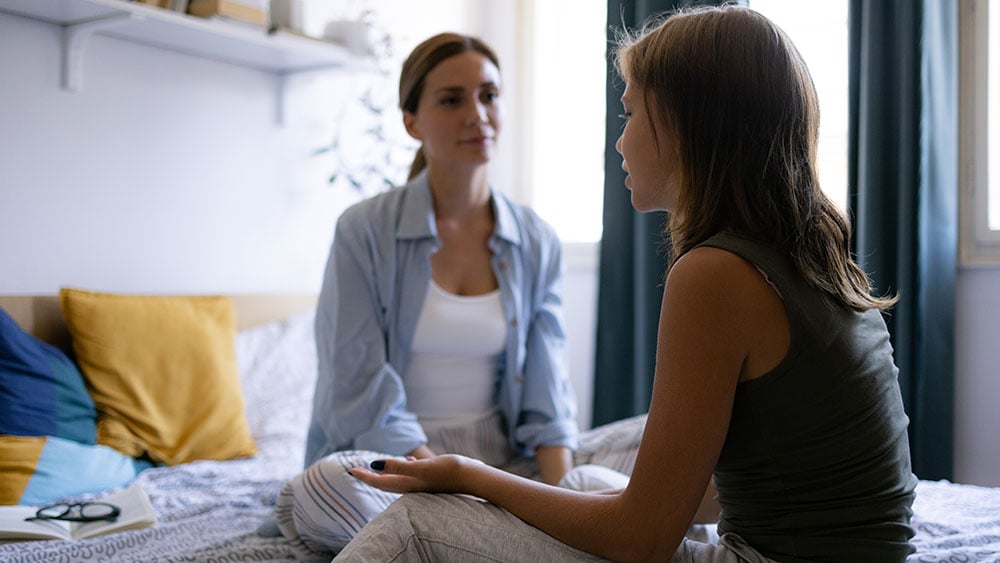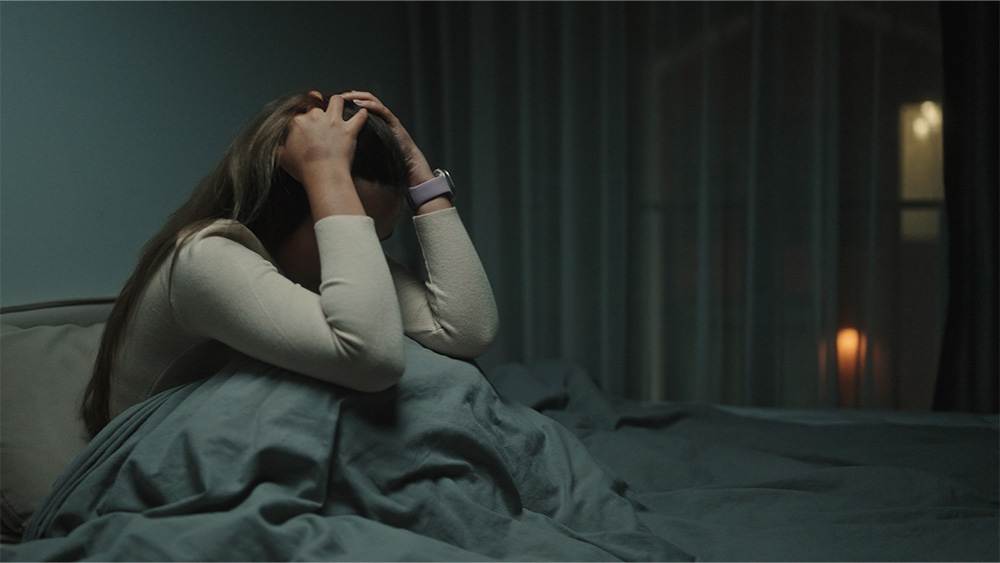Key Takeaways
- Melatonin is a natural hormone the body releases to promote sleep. Supplements create a synthetic version of melatonin.
- Melatonin supplements help kids fall asleep, not stay asleep. Since they are unregulated by the FDA, the amount of melatonin can be inconsistent.
- If you’re thinking about trying melatonin with your child/children, talk with your pediatrician first.
From birth through age 21, our pediatric providers are here to give your children the best possible care and help you as they grow.
Sleep is one of the most challenging parts of having children. Helping them get a consistent full night of sleep for 10-12 hours can be tough for many reasons. According to the American Academy of Pediatrics, 15-20 percent of children have trouble falling asleep and staying asleep.
Over the last decade, more parents have been using melatonin to help their children go to sleep easier. One study suggests nearly half of U.S. parents give their child or children melatonin at bedtime.
So how well do melatonin gummies and supplements work for sleep in children? Are they safe? Steven Schulz, MD, is the Rochester Regional Health Primary Care Institute Pediatric Medical Director and explains how the supplements work, whether they are safe for children, and what good sleep hygiene looks like.
How melatonin supplements help with sleep
Melatonin is a hormone released in the brain to begin the process of sleep. When melatonin is introduced to the brain, it triggers your natural sleep cycle.
When a child is given a melatonin pill, liquid, or gummy, the synthetic version of the hormone kickstarts the sleep process for their body.
While melatonin can be effective at slowing the body down for sleep, supplements are not regulated by the FDA. For that reason, there isn’t a way to determine the exact amount of melatonin contained in each pill or gummy.
One study published in the Journal of Clinical Sleep Medicine found melatonin content varies widely compared to what the label lists. More than 70 percent of the tested supplements had far less or far more melatonin than what the label said. Some contained other ingredients, such as cannabidiol or serotonin.
“For supplements with too much melatonin, side effects might include nightmares, headaches, GI trouble, excessive fatigue, grogginess, and having a hard time waking up in the morning,” Dr. Schulz said.
“There have been some more serious overdoses where kids have devoured a whole bottle. So, it’s important to make sure the supplements are locked up and not somewhere accessible for kids.”
If you think your child may have taken too much melatonin, you can call the Poison Control Center at (800) 222-1222.
Do melatonin supplements work?
The short answer to this question is for some kids, yes – if you’re asking if melatonin supplements help your child fall asleep. They help with the process of falling asleep, but not necessarily staying asleep.
There has not a significant amount of research about long-term use of melatonin supplements in children and how it could affect their health down the road.
“Overall, melatonin is thought to be relatively safe in the short term,” Dr. Schulz said. “The issue is what else is in that supplement and how much melatonin is your kid actually getting.” Dr. Schulz said.
How to help your child sleep well
If your child is going to start taking any new supplement or medication, talk with their pediatrician about it in case there could be an interaction with an existing medication.
Before choosing melatonin supplements, Dr. Schulz encourages parents to establish a consistent bedtime routine to help their child regulate their sleep. This is proven to make a big difference in their quality of sleep.
A good bedtime routine should include:
- a consistent bedtime time
- no screens for an hour before bedtime
- for younger children – perhaps a bath, reading a book
- for older children – reading alone, listening to relaxing music or a podcast, or turning on white noise
“If you are going to use melatonin with your child together with a consistent routine, you always want to consult your primary care provider and start with the lowest dose, using a certified brand you trust,” Dr. Schulz said. “But don’t forget that sleep hygiene is more important and always takes priority before introducing supplements or medications.”

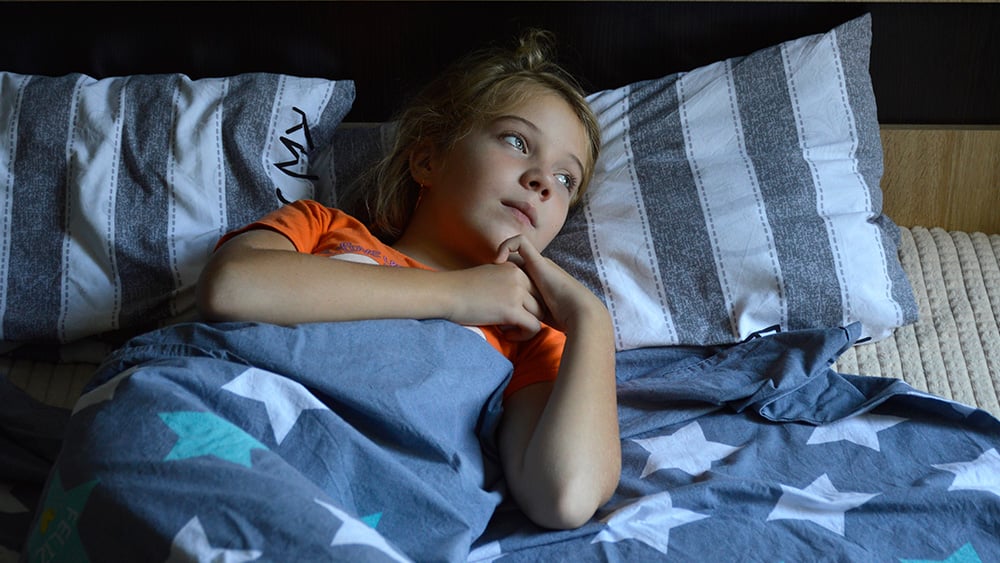

.jpg?h=564&iar=0&w=1001)

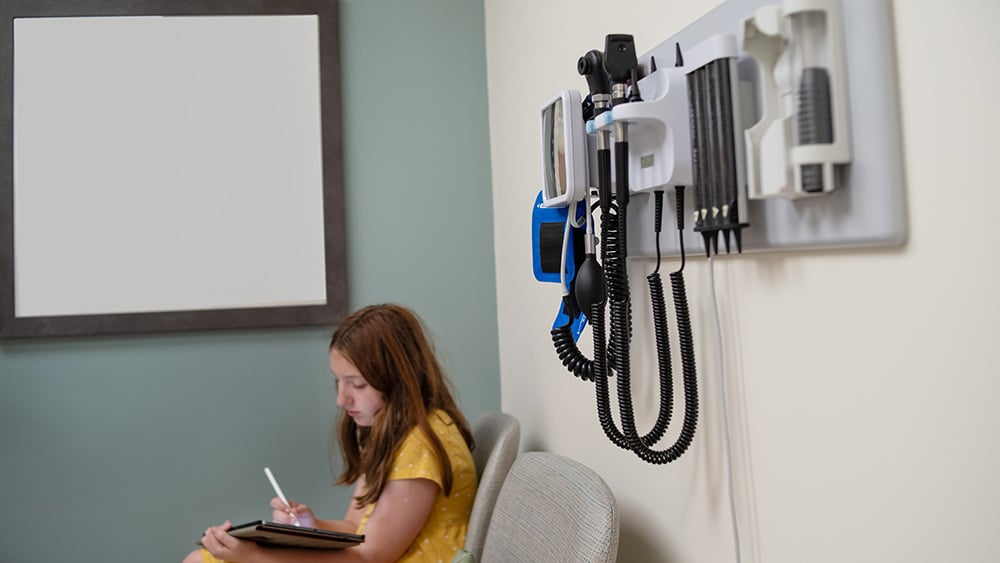
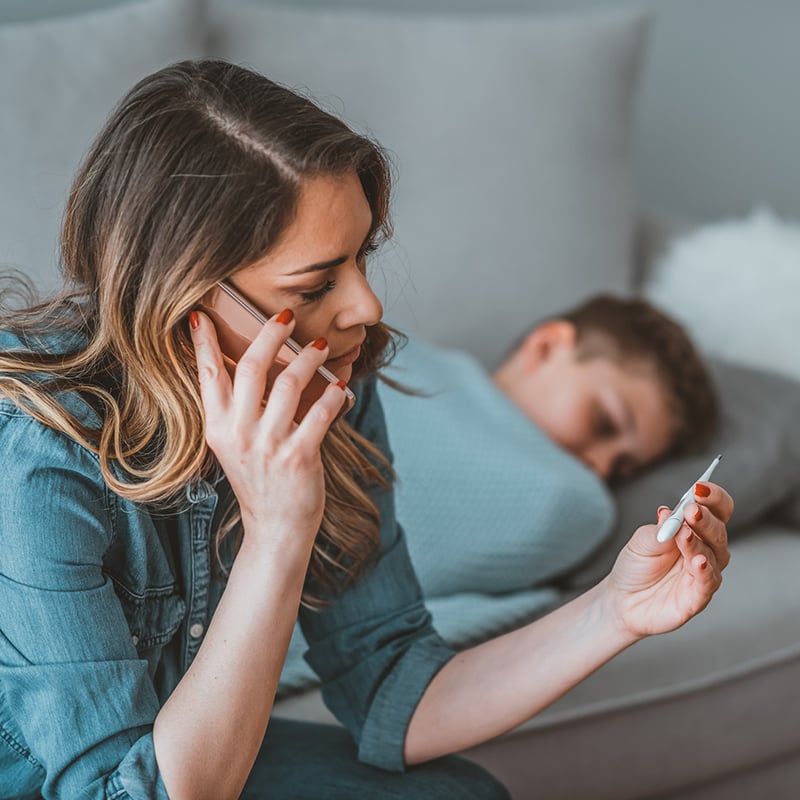
.jpg?h=1173&iar=0&w=2083)

